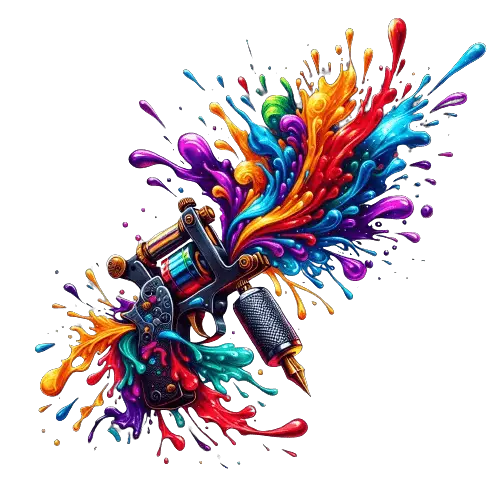Traditional army tattoos have deep meanings, reflecting loyalty, courage, and pride in military service. These tattoos honor fallen comrades, showcase military achievements, or signify personal values, such as honor and patriotism.
These powerful symbols are often inked on the arms, chest, or back, and commonly feature military iconography like eagles, flags, swords, or military emblems. Each tattoo carries a unique significance and serves as a permanent reminder of a soldier’s dedication and sacrifice to their country.
—————————————————————————————————————————————— Attention military enthusiasts and tattoo lovers! Traditional army tattoos hold a special place in the hearts of those who have served or currently serve in the military. These meaningful tattoos go beyond mere body art, reflecting core values and deep symbolism associated with military service. From honoring fallen comrades to showcasing military achievements, these tattoos act as permanent reminders of a soldier’s loyalty, dedication, and courage. Join us as we dive into the world of traditional army tattoos, exploring their various meanings and the powerful impact they have on those who wear them.
The Historical Significance Of Army Tattoos
Evolution Of Tattoos In The Military
Tattoos have a long-standing history within the military, dating back centuries. They have evolved over time, adapting to reflect the changing practices and beliefs of different military cultures. Here are a few key points to understand the evolution of tattoos in the military:
- Early beginnings: In ancient times, tattoos were used to mark soldiers as part of specific tribes or armies. They served as symbols of loyalty and unity, distinguishing individuals from the enemy.
- Identification and rank: As military forces grew, tattoos became a way to identify soldiers and establish rank. Tattoos were often placed on easily visible body parts such as the arms or chest, allowing commanding officers to quickly assess a soldier’s status.
- Superstitions and protection: Many military tattoos were believed to provide protection from harm or bring good luck. Sailors, in particular, adorned their bodies with various tattoo designs to protect themselves during long voyages at sea.
- Commemoration and remembrance: Tattoos have always held a significant role in memorializing fallen comrades. Soldiers often inked tattoos as a way to honor their fallen friends and keep their memory alive.
- Modern military tattoos: In today’s military, tattoos have become a form of self-expression. They serve as reminders of personal experiences, achievements, or values. Soldiers may choose to display their unit insignia, specific military symbols, or patriotic imagery.
Symbolism And Meaning Behind Traditional Army Tattoos
Traditional army tattoos carry deep meanings and symbolize a rich history of military service. Here are some common symbols and their meanings:
- Anchor: Represents stability and strength, often associated with sailors’ tattoos.
- Eagle: Symbolizes patriotism, freedom, and courage.
- Crown: Represents nobility, leadership, and authority.
- Skull: Symbolizes mortality and the risks faced by soldiers.
- Swords: Signify strength, honor, and a warrior’s spirit.
- Shields: Represent protection and defense.
- Rose: Often used to honor loved ones and the sacrifices soldiers make.
- Cross: Symbolizes faith, hope, and spiritual strength.
Connection Between Tattoos And Military Culture
Tattoos and military culture have long been intertwined, each influencing the other in significant ways. Here’s how tattoos have become an integral part of military culture:
- Sense of identity: Tattoos provide soldiers with a sense of identity and belonging. They serve as powerful reminders of their commitment to the military and the values it represents.
- Brotherhood and camaraderie: Tattoos create bonds among soldiers, reinforcing the sense of brotherhood and camaraderie within military units.
- Honoring service: Military tattoos serve as a visible tribute to a soldier’s service, commemorating the sacrifices made and the dedication shown.
- Storytelling: Tattoos can become a way for soldiers to share their stories, experiences, and accomplishments with others.
- Preserving tradition: By continuing the tradition of military tattoos, soldiers honor the legacy of those who came before them and pass on this aspect of military culture to future generations.
Tattoos in the military are not just ink on skin; they hold deep symbolism and connection to a rich history of service. They continue to be and will always remain an integral part of military culture, proudly displayed by those who have served.
Popular Traditional Army Tattoos And Their Meanings
The Anchor Tattoo: A Symbol Of Stability And Strength
- The anchor tattoo is a popular symbol in the army, representing stability and strength.
- It is often chosen by those who have served in the navy or have a connection to the sea.
- The anchor is a reminder of the ability to stay grounded and overcome obstacles, even in turbulent times.
- This tattoo can also be a symbol of steadfastness in personal relationships and loyalty to one’s comrades.
The Eagle Tattoo: Representing Freedom And Bravery
- The eagle tattoo is a powerful and majestic symbol often associated with the army.
- It represents freedom, bravery, and the spirit of the american military.
- The eagle’s sharp vision and strength are qualities that soldiers aspire to possess.
- This tattoo can also be a tribute to fallen soldiers, symbolizing their courage and sacrifice.
The Compass Tattoo: Signifying Guidance And Direction
- The compass tattoo is a timeless symbol that represents guidance and direction.
- In the army, it is often chosen by those who rely on navigational skills and depend on their instincts.
- This tattoo can serve as a reminder to always stay true to one’s path and follow one’s moral compass.
- It symbolizes the ability to overcome obstacles and find one’s way in challenging situations.
The Sword Tattoo: Symbolizing Honor And Courage
- The sword tattoo is a classic emblem of honor, courage, and strength.
- Soldiers often choose this tattoo to represent their commitment to defending their country and protecting others.
- It serves as a reminder of the bravery and sacrifice required in the military.
- The sword can also represent personal resilience and the ability to face adversity head-on.
The Skull Tattoo: A Reminder Of Mortality And Sacrifice
- The skull tattoo holds deep meaning in the army, serving as a reminder of mortality and sacrifice.
- It represents the risks and dangers soldiers face in combat, acknowledging the fragility of life.
- This tattoo can also symbolize mourning for fallen comrades and a commitment to honor their memory.
- It serves as a constant reminder to live each day to the fullest and appreciate the sacrifices made for freedom.
Remember, each of these traditional army tattoos carries powerful meanings and serves as a source of inspiration and pride for those who choose to ink them. Whether it is a symbol of stability, freedom, guidance, honor, or sacrifice, these tattoos represent the values held dear by men and women in the military.
The Personal Stories Behind Army Tattoos
Reflections On Why Individuals Choose Specific Army Tattoos
Army tattoos hold deep personal significance for soldiers, representing their journey, courage, and loyalty. Here are some key reasons why individuals choose specific army tattoos:
- Showcasing identity: Army tattoos are a way for soldiers to communicate their sense of self and identity. Each tattoo carries a unique meaning that reflects a particular aspect of their military experience.
- Honoring achievements: Many soldiers choose tattoos to honor their accomplishments and milestones in the army. These tattoos often represent badges, insignias, or medals earned during service.
- Commemorating fallen comrades: Army tattoos can serve as a lasting tribute to fallen comrades. Soldiers may opt for tattoos that memorialize their fallen brothers and sisters, ensuring their memory lives on forever.
- Preserving memories: Some soldiers get tattoos to capture significant events or memories from their time in the army. These tattoos act as a visual reminder of their service and the moments that shaped them.
- Expressing camaraderie: Army tattoos also foster a sense of camaraderie among soldiers. By getting matching or similar tattoos, servicemen and women reaffirm the deep bond they share with their fellow soldiers.
Emotional And Psychological Impact Of Army Tattoos
Army tattoos go beyond their visual appeal; they have a profound emotional and psychological impact on soldiers. Here are some key aspects of this impact:
- Symbol of resilience: Army tattoos serve as a constant reminder of soldiers’ resiliency and bravery. They provide a source of strength during challenging times, serving as a visible testament to their ability to overcome adversity.
- Promote healing and closure: For soldiers who have endured traumatic experiences during their service, army tattoos can be a form of therapy. These tattoos allow individuals to reclaim their bodies and find healing and closure in the process.
- Boost confidence and pride: Army tattoos instill a sense of pride and confidence in soldiers. They serve as a powerful symbol of their commitment and dedication to serving their country, boosting their morale and self-esteem.
- Facilitate storytelling: Army tattoos often become conversation starters, enabling soldiers to share their unique stories and experiences with others. The tattoos act as a visual narrative, allowing individuals to connect with their audience on a deeper level.
The Bond Between Soldiers And Their Tattoos
Soldiers share an indescribable bond with their army tattoos, which goes beyond their aesthetic appeal. Here are some key reasons for this enduring connection:
- Reminders of service: Army tattoos serve as permanent reminders of soldiers’ commitment and sacrifice. They reinforce the sense of duty, creating an everlasting connection to the military and the shared experiences of fellow soldiers.
- Sense of belonging: Army tattoos create a deep sense of belonging among soldiers. These tattoos act as a unifying symbol, fostering a bond between servicemen and women who have gone through similar challenges and triumphs.
- Continuing legacy: Army tattoos enable soldiers to carry on the legacy and traditions of the military. By wearing these tattoos, soldiers become part of a long-standing lineage and honor the sacrifices of those who came before them.
- Source of strength: The presence of army tattoos provides soldiers with strength and resilience. They serve as a tangible reminder of their own bravery and serve as a source of encouragement during difficult times.
- Permanence and loyalty: The permanence of army tattoos signifies the unbreakable loyalty soldiers have towards their country and fellow comrades. These tattoos embody an unwavering commitment that lasts a lifetime.
Army tattoos hold immense personal significance for soldiers, representing their journey, resilience, and sense of belonging. These tattoos become part of their identity, serving as visual reminders of their service, achievements, and the bond they share with their fellow servicemen and women.
Modern Interpretations Of Traditional Army Tattoos
Traditional Army Tattoos And Meanings
Contemporary Adaptations Of Army Tattoos
Army tattoos have a rich history and are steeped in tradition. However, in recent years, there has been a surge in contemporary adaptations of these tattoos. Here are some key points to consider:
- Incorporation of modern elements: With changing times, soldiers and veterans have started integrating modern elements into traditional army tattoos. This includes incorporating elements such as camouflage patterns, modern weaponry, and modern military symbols.
- Personalization: Soldiers and veterans now often add personal touches to their army tattoos, making them unique and reflective of their own experiences. This can include adding names, dates, or specific military units to the traditional designs.
- Tribute tattoos: Many individuals choose to get army tattoos as a tribute to their loved ones who have served or are currently serving in the military. These contemporary adaptations often include elements like dog tags, soldiers in action, or even portraits of family members who have served.
Integration Of Modern Elements Into Traditional Designs
Contemporary adaptations of traditional army tattoos often involve the integration of modern elements into the classic designs. Here are some key points to note:
- Camouflage patterns: Soldiers often choose to incorporate camouflage patterns into their tattoos to symbolize their association with the military.
- Modern weaponry: The inclusion of modern military weaponry, such as assault rifles or helicopters, adds a contemporary touch to traditional army tattoos.
- Military symbols: Soldiers may opt to add modern military symbols like rank insignia or unit patches to their traditional army tattoos, representing their specific role or affiliation within the armed forces.
Evolving Significance And Interpretations Of Army Tattoos
As army tattoos have evolved over time, so too have their significance and interpretations. Here are some key points to consider:
- Commemoration and remembrance: Army tattoos have long been used to commemorate fallen comrades and remember the sacrifices made by those in the military. However, the meanings behind these tattoos have expanded to include a more personal connection to individual experiences and memories.
- Courage and strength: Army tattoos are often chosen to symbolize bravery, courage, and the physical and mental strength required in military service.
- Brotherhood and camaraderie: Army tattoos can represent the strong bonds formed between fellow soldiers and the sense of camaraderie shared within military units.
- Pride and honor: Many individuals choose to get army tattoos as a way to express their pride in serving their country and to honor the traditions and values of the armed forces.
Contemporary adaptations of traditional army tattoos have become increasingly popular, with soldiers and veterans incorporating modern elements into their designs. This has allowed for more personalization and tribute tattoos. As the significance and interpretations of army tattoos continue to evolve, they remain powerful symbols of courage, strength, brotherhood, and honor.
Army Tattoos And Identity
The act of getting a tattoo holds a significant meaning for many individuals, particularly those in the military. Army tattoos, in particular, play a crucial role in establishing a sense of identity within the military community. Let’s explore how these tattoos contribute to one’s identity, honor military service, and impact civilian life post-service.
How Army Tattoos Contribute To A Sense Of Identity
- Army tattoos serve as permanent symbols of dedication and allegiance to the military, representing a deep connection to a shared identity within the armed forces.
- They form a visual language understood by fellow soldiers, creating a sense of camaraderie and unity.
- Army tattoos often depict emblems, badges, or unit insignias, reinforcing a strong affiliation with a specific branch or division.
- These tattoos can also represent one’s rank, achievements, or specific roles within the military, further solidifying their identity and accomplishments.
- By displaying army tattoos, service members communicate their commitment to serving their country and their pride in their military affiliation.
Tattoos As A Way To Honor And Remember Military Service
- Army tattoos serve as a way to honor fallen comrades and remember the sacrifices made during military service.
- They provide a tangible reminder of the experiences, values, and bonds formed during active duty.
- Soldiers may choose to include the names of fallen comrades, memorial dates, or powerful symbols that evoke memories of their time in service.
- Such tattoos provide comfort and solace, allowing service members to carry their military experiences with them throughout their lives.
- Army tattoos also act as a tribute to the resilience and bravery demonstrated during challenging times, serving as a constant reminder of their dedication to their country.
Impact Of Tattoos On Civilian Life Post-Service
- While army tattoos can enhance one’s sense of identity within the military, their impact on civilian life post-service can vary.
- Some individuals may choose to keep their tattoos to maintain a strong connection to their military background, often finding camaraderie within veteran communities.
- Army tattoos can spark conversations with fellow veterans, facilitating a sense of belonging and shared experiences.
- However, others may encounter challenges in the civilian job market due to potential stereotypes or misconceptions surrounding tattoos.
- It is essential to consider the placement and visibility of army tattoos to strike a balance between personal expression and professional opportunities.
- On a positive note, society’s perception of tattoos is evolving, and many employers now view them more favorably, recognizing the unique experiences and characteristics veterans bring to the workforce.
Army tattoos serve as a powerful way for military personnel to express their identity, honor their service, and commemorate their experiences. These permanent symbols connect soldiers not only to their military comrades but also to a lifelong commitment to serving their country.
While their impact may extend into civilian life, armed forces tattoos continue to hold immense personal significance for those who proudly wear them.
Cultural Influences On Army Tattoos
Traditional Army Tattoos And Meanings
The rich history of military tattoos stretches back centuries, with each branch of the armed forces having its own unique symbolism and significance. Army tattoos, in particular, represent not just allegiance and pride, but also cultural influences that have shaped the designs over time.
In this section, we will explore the different cultural meanings and symbols in army tattoos, provide examples of culturally significant designs, and highlight cross-cultural exchange and influence in tattoo designs.
Different Cultural Meanings And Symbols In Army Tattoos
Army tattoos are a way for soldiers to express their loyalty, honor, and bravery. These tattoos often incorporate cultural symbols and imagery that hold specific meanings. Here are some key points to consider:
- American army tattoos:
- The american flag: Symbolizes patriotism and love for the country.
- Eagle: Represents freedom, power, and courage.
- Bald eagle: Signifies protection and resilience.
- British army tattoos:
- Union jack flag: Reflects national identity and pride.
- Lion: Symbolizes strength, bravery, and nobility.
- St. george’s cross: Represents honor and chivalry.
- Russian army tattoos:
- Star: A widely used symbol of authority and rank.
- Skull and bones: Often used to signify a willingness to confront danger fearlessly.
- Russian orthodox cross: Carries spiritual and religious significance.
Examples Of Culturally Significant Army Tattoos
Army tattoos reflect the diverse cultural backgrounds of soldiers and their shared experiences in service. Here are a few examples of culturally significant army tattoos:
- Maori-inspired tattoos: Maori soldiers often incorporate traditional tribal designs to represent their heritage and warrior spirit.
- Celtic knots: Popular among soldiers of irish or scottish descent, celtic knots symbolize unity, loyalty, and interconnectedness.
- Samurai tattoos: Soldiers in japan may choose to honor their ancestral heritage with samurai-inspired tattoos, portraying strength, discipline, and honor.
- Hindu-inspired tattoos: Soldiers from hindu backgrounds may incorporate sacred symbols like the om or deities like lord hanuman to express their faith and protection.
Cross-Cultural Exchange And Influence In Tattoo Designs
Tattoos have a long history of cross-cultural exchange, where different styles and symbols merge, creating unique designs. Army tattoos are no exception. Here are some points to consider:
- Global military alliances: Soldiers serving alongside soldiers from different countries often exchange ideas and cultural influences, leading to the incorporation of diverse symbols and meanings in army tattoos.
- Cultural appreciation: Soldiers with a deep appreciation for different cultures may choose to incorporate symbols and designs from various traditions, reflecting their respect and admiration.
- Artistic interpretations: Tattoo artists from different cultural backgrounds may bring their own artistic styles, techniques, and influences to army tattoos, further diversifying the designs.
Army tattoos are not just decorative but serve as permanent reminders of a soldier’s journey, sacrifices, and cultural identity. By understanding the different cultural meanings and symbols in army tattoos, we gain a deeper appreciation for the diverse range of designs seen among soldiers today.
Army Tattoos And Commemoration
Traditional Army Tattoos And Meanings
Tattoos honoring fallen comrades:
- Many soldiers choose to honor their fallen comrades through tattoos, using ink to permanently commemorate their sacrifice and keep their memory alive.
- These tattoos serve as a powerful reminder of the bond shared with fellow soldiers and the ultimate sacrifice made in service to their country.
- Some popular designs feature names, ranks, dates, or symbols representing the branch of the military in which they served.
- The tattoo placement varies, with some soldiers opting for visible areas like the arms or chest, while others choose more personal locations to keep the tribute private.
- Tattoo designs honoring fallen comrades often incorporate elements such as angel wings, dog tags, helmets, or military insignia to add depth and symbolism to the tribute.
Memorial tattoos and their role in the healing process:
- Memorial tattoos play a crucial role in the healing process for soldiers who have experienced loss or trauma.
- Getting inked allows soldiers to express their emotions, find closure, and initiate the healing journey.
- These tattoos help in preserving the memories and stories of loved ones who are no longer with them physically.
- The act of getting a memorial tattoo can serve as a cathartic experience, helping soldiers process their grief, guilt, or survivor’s guilt.
- For some soldiers, memorial tattoos become a source of comfort, providing a tangible connection and a constant reminder of the cherished memories shared with their fallen comrades.
Army tattoos as a form of remembrance and tribute:
- Army tattoos go beyond honoring fallen comrades and can serve as a tribute to the entire military brotherhood and sisterhood.
- These tattoos symbolize the shared experiences, values, and sacrifices that soldiers endure throughout their service.
- Soldiers often choose to incorporate patriotic imagery, such as the american flag, eagles, or quotes that embody the spirit of their commitment to their country.
- Army tattoos can also be a representation of specific military units, deployments, or achievements, reflecting the unique path and story of each soldier.
- These tattoos not only serve as a personal reminder but also act as a way to communicate military pride and solidarity with fellow soldiers.
Army tattoos hold immense meaning and play a significant role in commemorating fallen comrades, aiding in the healing process, and serving as a tribute to the military community. These permanent inked symbols embody the sacrifices made and the unwavering commitment to duty, honor, and country displayed by those who have served in the armed forces.
The Future Of Army Tattoos
Army tattoos have a rich history and deep cultural significance within the military community. Over the years, these tattoos have served as powerful symbols of honor, bravery, and loyalty. However, as times change, so do attitudes towards tattoos. In this section, we will explore the trends, innovations, and changing perspectives that shape the future of army tattoos.
Trends And Innovations In Army Tattoo Designs
As with any form of art, tattoo designs continue to evolve with the ever-changing trends and preferences of society. Here are some of the latest trends and innovations in army tattoo designs:
- Minimalistic designs: Increasingly, soldiers are opting for more subtle and minimalistic designs that symbolize their military affiliation. These tattoos often feature simple silhouettes of army symbols or emblems.
- Geometric patterns: Geometric patterns are gaining popularity among servicemen and women. These intricate designs not only look visually stunning but also hold deeper meanings, such as balance, strength, and precision.
- Watercolor tattoos: Drawing inspiration from the world of fine art, watercolor tattoos have emerged as a highly sought-after style. These tattoos feature vibrant colors and soft, blended edges, creating a unique and eye-catching effect.
- Hyperrealistic portraits: For soldiers looking to honor their comrades or loved ones, hyperrealistic portraits have become a popular choice. These tattoos showcase intricate details, capturing the essence and emotion of the person being depicted.
Changing Attitudes Towards Visible Tattoos In The Military
In the past, visible tattoos were often seen as unprofessional and discouraged within the military. However, there has been a shift in attitudes towards tattoos in recent years. Here are some key points to consider:
- Policy revisions: Many military branches have revised their tattoo policies to accommodate the changing times. Restrictions on visible tattoos have been loosened, allowing soldiers to express themselves more freely through body art.
- Recognition of individuality: The military recognizes that tattoos are a form of self-expression and a reflection of individual experiences. As a result, there is now a greater acceptance and appreciation for soldiers’ personal stories depicted through tattoos.
- Retention and recruitment tool: Embracing visible tattoos has also become a retention and recruitment strategy for the military. By allowing soldiers to proudly display their ink, it helps foster a sense of belonging and identity within the ranks.
Continued Relevance And Importance Of Army Tattoos
While societal preferences may shift, the relevance and importance of army tattoos remain steadfast for many soldiers. Here’s why these tattoos continue to hold significance:
- Commemoration and remembrance: Army tattoos serve as lasting memorials to fallen comrades, capturing their sacrifice and preserving their memory.
- Sense of camaraderie: Having matching or similar tattoos can foster a sense of camaraderie among soldiers. These shared symbols create a bond and reinforce the unity within the military community.
- Motivation and inspiration: For soldiers in active duty, army tattoos can serve as a powerful source of motivation and inspiration. These tattoos remind them of their purpose, values, and the honor associated with their service.
Army tattoos are not only a form of art but also a testament to the unwavering pride and commitment of those in the military. Whether through trends and innovations in designs or shifting attitudes towards visible tattoos, the future of army tattoos continues to evolve while remaining deeply rooted in tradition and significance.
Frequently Asked Questions For Traditional Army Tattoos And Meanings
What Are The Meanings Behind Traditional Army Tattoos?
Traditional army tattoos often symbolize bravery, loyalty, patriotism, and camaraderie among soldiers.
Which Army Tattoos Are The Most Popular?
Among the most popular army tattoos are the iconic eagle, anchor, compass, dog tags, and military badges.
Are There Any Restrictions On Getting Army Tattoos?
There may be restrictions on getting army tattoos, depending on the branch and regulations of the specific military organization.
Conclusion
Army tattoos have a rich history and deep meanings that have stood the test of time. From symbols of bravery and honor to reminders of fallen comrades, these tattoos bear witness to the sacrifices made by soldiers. The variety of designs allows each individual to choose a tattoo that resonates with their personal experiences and values.
Whether it’s the iconic eagle, the powerful skull, or the patriotic flag, these tattoos serve as a permanent tribute to one’s service and dedication to their country. Understanding the significance behind these traditional army tattoos can create a sense of solidarity and connection among veterans and active-duty military personnel.
So, if you’re considering getting an army tattoo, take the time to appreciate the rich symbolism behind each design. By doing so, you will not only honor the traditions of the past, but also carry the legacy of bravery and sacrifice into the future.




